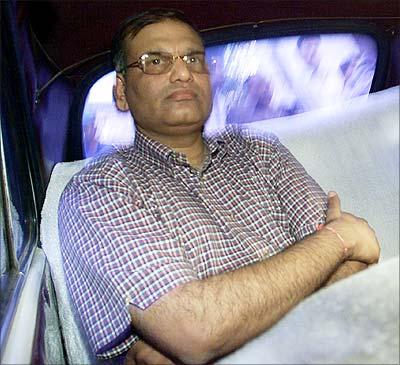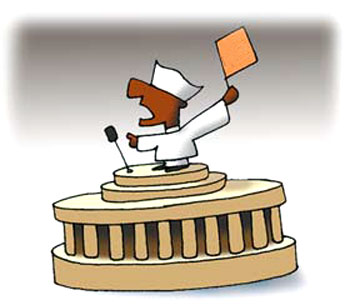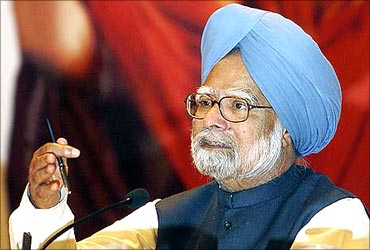 | « Back to article | Print this article |
Of Harshad Mehta and how UPA can regain trust
The prime minister's answers to questions put to him by TV editors on Wednesday (Feb 16) were less than convincing on key points, as even those with goodwill for him will concede. But there is little to be gained by hammering the obvious.
More importantly, as an insightful observer pointed out, it may be useful to learn from the Harshad Mehta scam of the early 1990s, and its fallout. That sorry episode led to far-reaching reform of India's stock market and the birth of a thoroughly modern stock exchange.
It led also to the de-materialisation of shares and the birth of well-run share depositories. And it resulted in the stock market regulator being empowered like never before.
The result today is one of the better functioning stock markets anywhere. For all of which, thank Harshad Mehta.
Click NEXT to read on . . .
Of Harshad Mehta and how UPA can regain trust
Could the multitude of scams that have erupted over the past six months lead to similarly positive outcomes? Yes, if the government goes about the job systematically.
Most of the controversies relate to a few defined sectors: land/real estate, scarce natural resources (iron ore, coal, spectrum), and finally government contracts.
As it happens, solutions in all three areas are not only feasible, some of them are already in the works.
Click NEXT to read on . . .
Of Harshad Mehta and how UPA can regain trust
For instance, a new draft law on mining proposes transparent auctions, mimicking the established and functioning policy for oil and gas fields.
Another Bill looks at how to clean up land acquisition and make it more fair to the seller who is being displaced against his will; indeed, some state governments have already introduced methods that seem to be working well.
And the spectrum mess could get cleaned up once and for all if errant companies are appropriately penalised, if past omissions are corrected, and if Mr Sibal would pause to think before coming out with glib solutions.
Click NEXT to read on . . .
Of Harshad Mehta and how UPA can regain trust
That would leave government contracts, which range all the way from multi-billion defence deals to road contracts, and from 'overlay' supplies for the Commonwealth Games to discretionary transactions (think Yeddyurappa and Adarsh).
The government has already set in motion a process to take away discretionary rights, though whether this can really work remains to be seen.
The real deterrent here would be a truly independent watchdog so that the chances of getting caught are very high; after all, every telecom company that did not do deals with a crooked minister must now be thanking its stars.
Click NEXT to read on . . .
Of Harshad Mehta and how UPA can regain trust
That should become the general mood across the board. If the Central Bureau of Investigation were to be made immune to political influence, and if the Lok Pal Bill were to be made a more convincing document, that would cover much of the required ground.
The rest would be covered if the continuing rackets in government hand-out programmes were minimised by using cash transfers.
And the truth is that all or most of this can be put in place in the next three months.
Click NEXT to read on . . .
Of Harshad Mehta and how UPA can regain trust
The public's faith in the processes of government would be restored if the prime minister is as good as his word, and goes with determination after all the guilty in the telecom scam and the many Commonwealth Games rackets (action has already been taken on Adarsh and Antrix), and if the follow-through policy and legislative changes are made quickly.
India has been slipping in the international corruption rankings, domestically the birth of oligarchies has done much to derail markets and de-legitimise politics, and the damage done to the country's reputation in world capitals is now hurting in more ways than one.
All of this can be undone real time. So if Manmohan Singh wants his discredited government to regain trust, he still has a real chance.







